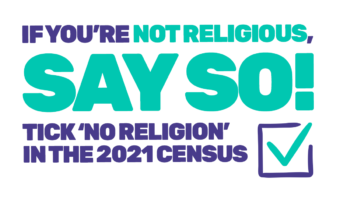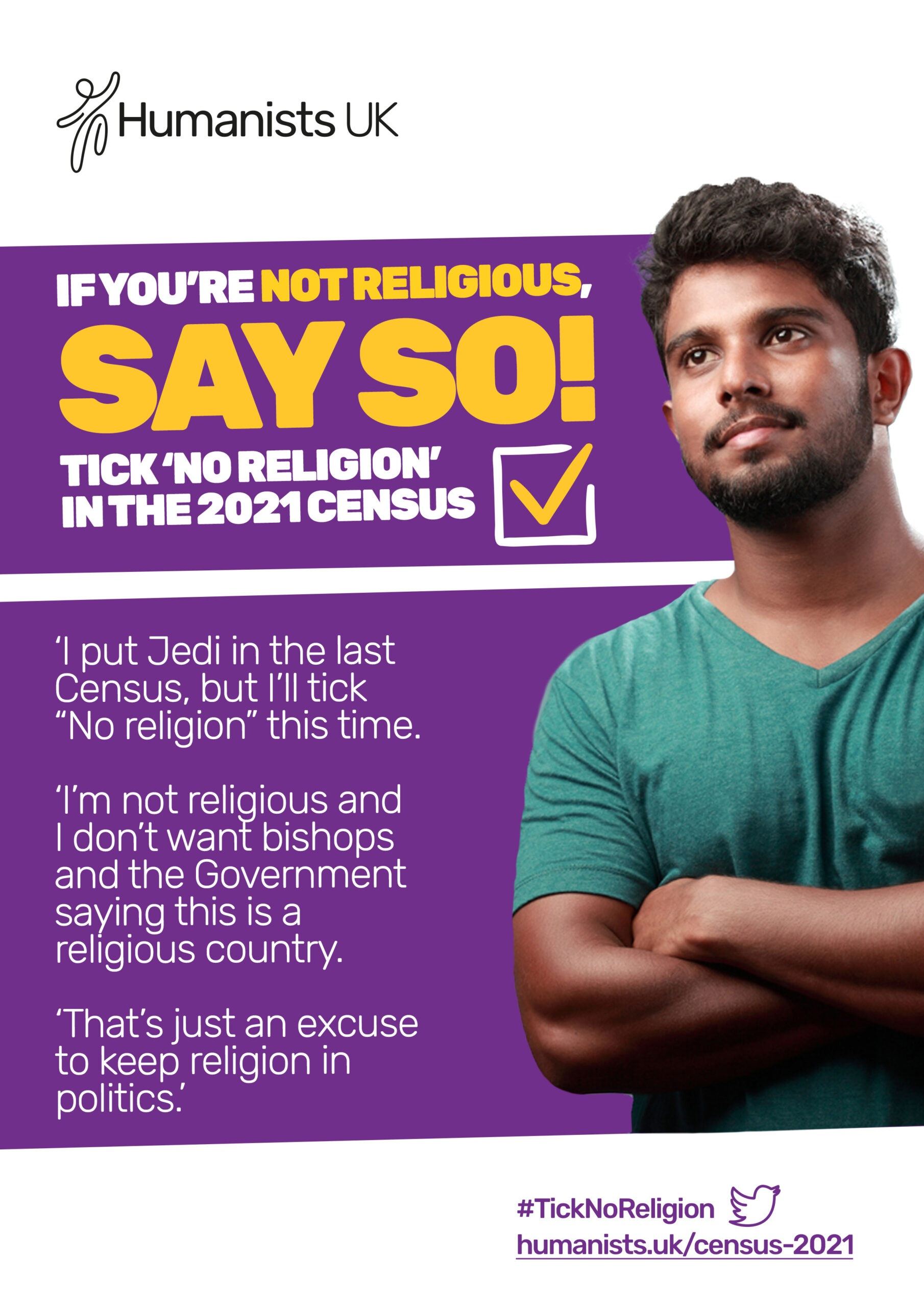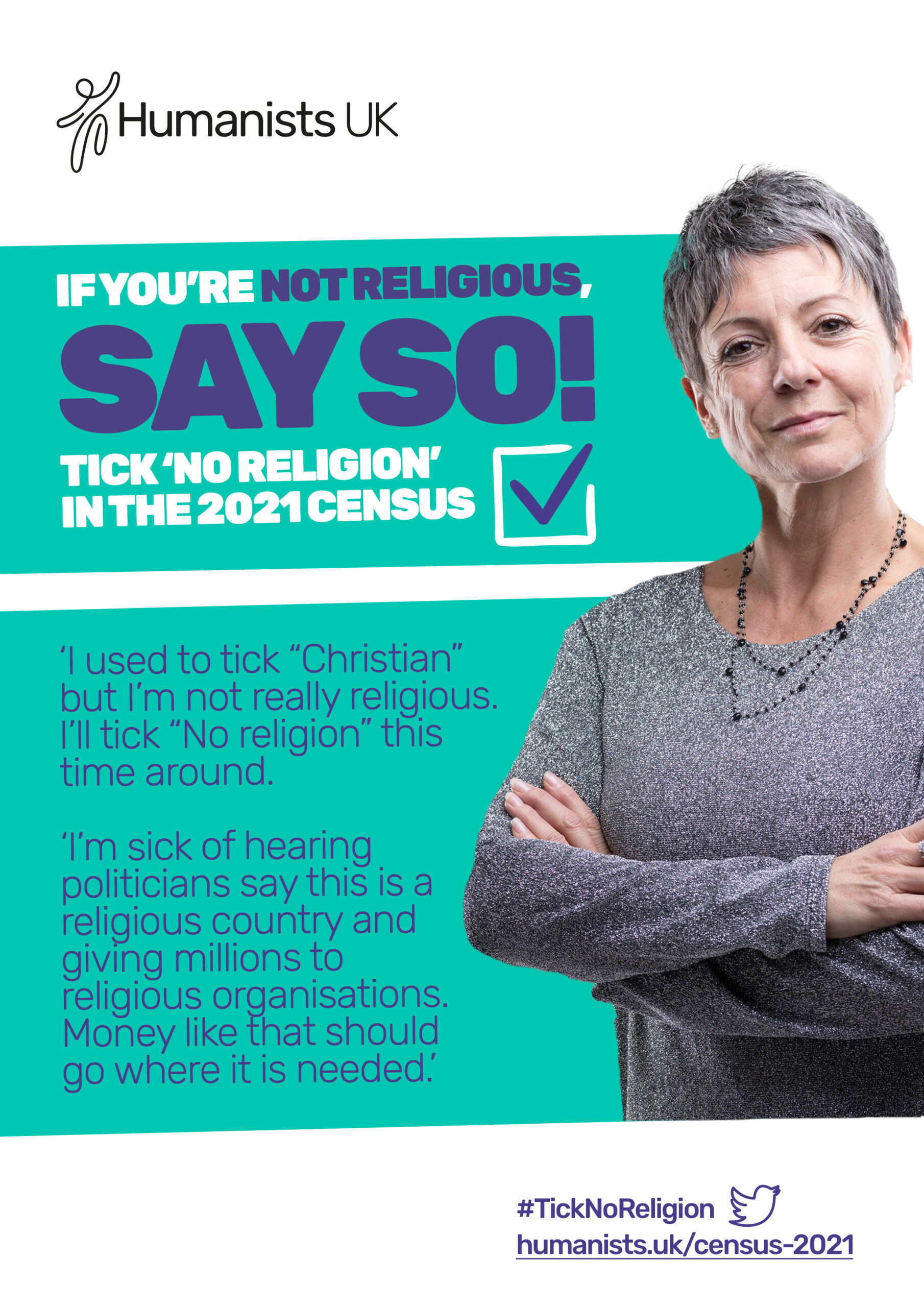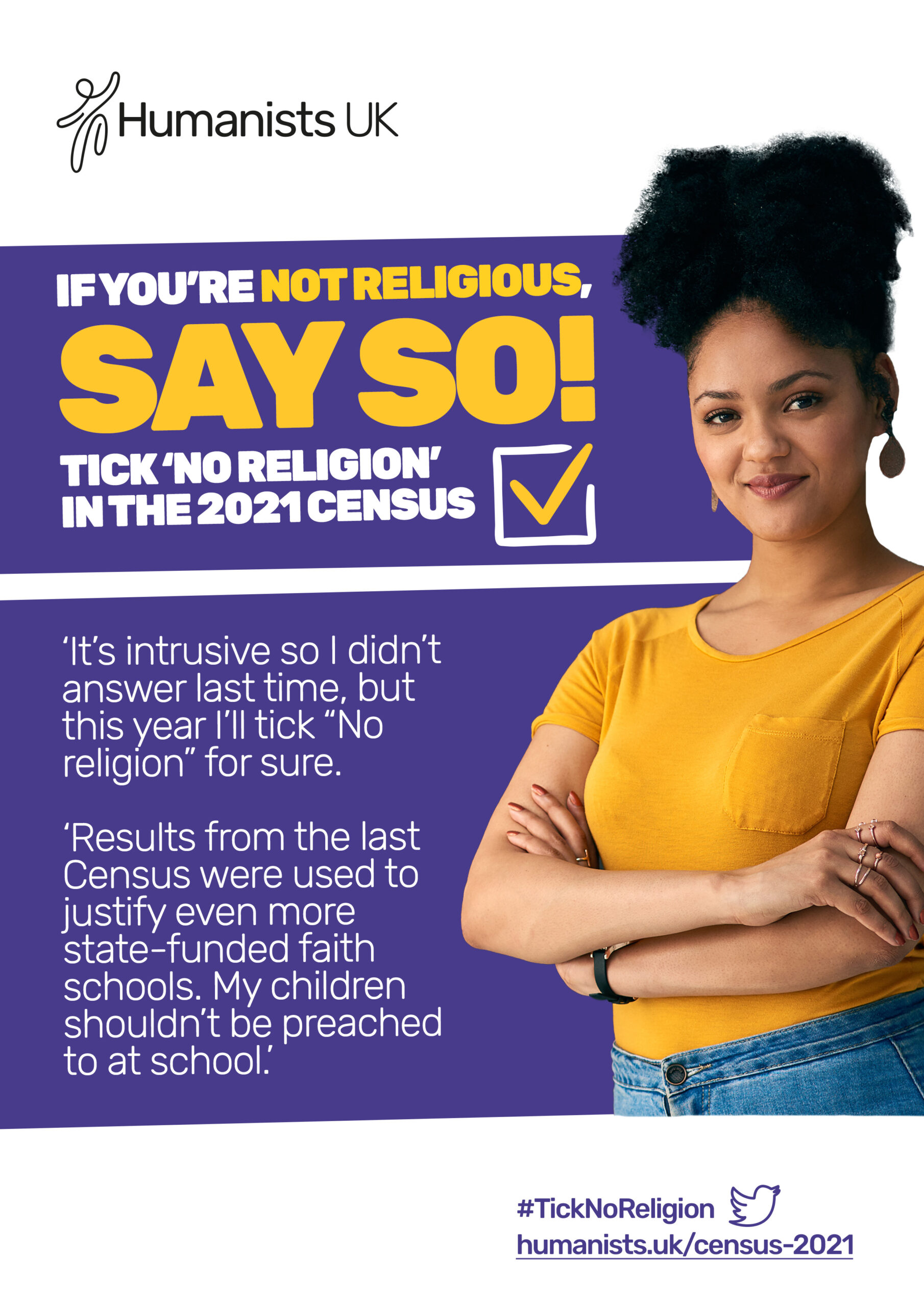 ‘If you’re not religious, say so!’ – that is the simple request of a campaign being launched today by Humanists UK, encouraging people who are not in any meaningful sense religious to tick the ‘no religion’ option on the 2021 Census. Humanists UK is running the campaign because the biased and leading nature of the Census question has in the past caused many people who don’t believe in or practise a religion to nonetheless tick a religion box by default. In 2011 the consequence was that, compared with more accurate surveys, the number of non-religious people was cut in half.
‘If you’re not religious, say so!’ – that is the simple request of a campaign being launched today by Humanists UK, encouraging people who are not in any meaningful sense religious to tick the ‘no religion’ option on the 2021 Census. Humanists UK is running the campaign because the biased and leading nature of the Census question has in the past caused many people who don’t believe in or practise a religion to nonetheless tick a religion box by default. In 2011 the consequence was that, compared with more accurate surveys, the number of non-religious people was cut in half.
In England and Wales, the question is ‘What is your religion?’, and the non-religious option is ‘No religion’. In Northern Ireland the question is ‘What religion, religious denomination or body do you belong to?’, and the non-religious option is ‘None’.
The leading nature of the question and resulting distortion of the facts matters because Census results are used by government and local authorities to make important policy decisions. These include how to allocate funding to state services such as education, health, social care, and pastoral care. The continuing requirement for compulsory Christian worship in state schools is justified based on the Census results, as is the ever-increasing number of state faith schools, and aspects of our constitutional settlement like, for example, the ongoing presence of 26 bishops voting in Parliament.
Conversely, if the non-religious are more accurately counted it will encourage more state schools that accept all pupils equally regardless of their parents’ beliefs, more schools replacing compulsory worship with inclusive assemblies, and schools swapping faith-based religious instruction for inclusive education about all the different beliefs and values.
Humanists UK Chief Executive Andrew Copson commented:
‘Our message is simple: if you don’t believe in or practise any religion and don’t want to be counted as if you do, then you should tick the “No religion” box in this year’s Census. You may be ticking a religious box out of cultural sympathy or family history, but the effect is that you will count as religious in policymakers’ eyes. The best way to make clear that this is wrong is by everyone who is not religious in any meaningful sense ticking the “No religion” box this year.’
Humanists UK’s campaign
10 years ago, Humanists UK’s highly successful Census Campaign saw public advertising on billboards in railway stations and at the roadside, thousands of leaflets handed out, and extensive media debate about the nature of the question.
This year’s campaign has to be somewhat different, because of the ongoing coronavirus pandemic. As a result, instead of adverts in public spaces, Humanists UK will instead be focusing on online advertising, press adverts, and distributing posters to its 100,000 members and supporters to display in their windows. It will also be polling the public to show how different question wording leads to different measurement of affiliation, belonging, believing, and practising.
The leading nature of the question
The Office of National Statistics (ONS), which runs the Census in England and Wales, itself acknowledges that the question captures what it terms ‘weak affiliation’, which ‘includes those whose practising habits vary from none to frequent. This ranges from those who actively practice a religion to individuals who chose to declare an affiliation with a particular religion based on being christened or baptised, being married or wanting to get married in a church and wanting their children to be raised in a particular faith.’ ONS research also suggests that some people tick Christian simply because that was the religion they were brought up in – regardless of present beliefs or practices.
Through engagement running up to the Census, Humanists UK argued that this measure is not the most appropriate for decision-makers, where measures of religiosity based on belief or practice would be better as those correlate much more strongly with people’s service needs. However, the ONS rebuffed these efforts, largely based on the argument that statisticians would want the result to be comparable to the 2001 and 2011 Censuses. However, the ONS has now acknowledged that in ‘the 2021 Census topic consultation… there was… evidence of demand for data covering religious beliefs and practices. [We] plan to conduct an implementation review of the religion principle to identify how it is being used across government. The outcome of this review will inform future work in this area, which may include additional questions to measure concepts such as belief and practice.’
Notes:
For further comment or information, please contact Humanists UK Director of Public Affairs and Policy Richy Thompson at press@humanists.uk or phone 020 7324 3072 or 020 3675 0959.
Visit the website of the 2021 Census campaign.
Humanists UK is the national charity working on behalf of non-religious people. Powered by 100,000 members and supporters, we advance free thinking and promote humanism to create a tolerant society where rational thinking and kindness prevail. We provide ceremonies, pastoral care, education, and support services benefitting over a million people every year and our campaigns advance humanist thinking on ethical issues, human rights, and equal treatment for all.



